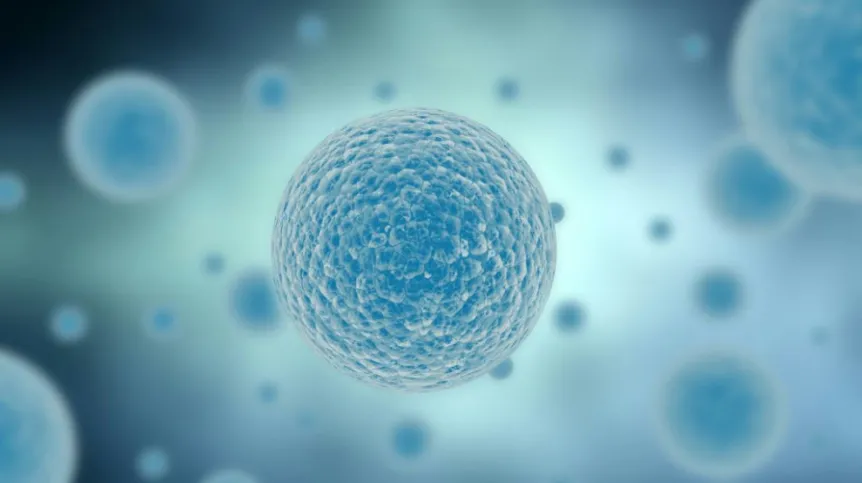
The human body usually treats transplanted cells as a foreign body and fights them with the immune system. Researchers constructed hideouts in the form of microcapsules that will separate the cells from the antibodies that threaten them, while allowing necessary nutrients to pass through. But this is not the only use for these carriers.
The microcapsules developed by researchers at the West Pomeranian University of Technology in Szczecin are hydrogel carriers. "That means that they are 99 percent water, one percent polymeric material. As a result of chemical reactions, a specific porous shell forms on the outer surface of each microcapsule" - Prof. Artur Bartkowiak described in an interview with PAP.
Inside, scientists can place plant, animal and human cells, bacteria or yeast. Filled microcapsules can be placed in both bioreactors (devices for culturing cells) as well as in the human body. "We have developed a system in which we enclose microorganisms or cells. Outer membrane allows for penetration of nutrients into the capsule that are necessary to ensure the functioning the cells contained inside. On the other hand, substances produced by the cells can be released from the microcapsules to the outside" - the researcher explained.
In addition, controlled porous structure of the capsule prevents antibodies from penetrating into the capsule, as they are larger than the holes on its surface. Thus, they will not destroy the cells that are inside. This property is particularly important, because it allows to use the microcapsules in transplantation. "There is always a risk that the transplanted cells - even patient\'s own cells cultured extracorporeally - may be treated as something foreign by the patient\'s body. They must be protected against antibodies and immune system of the recipient" - explained the researcher. This particularly beneficial for the patient, because it allows to lower the doses of drugs that reduce the activity of the immune system.
But this is only one of the potential uses of the capsules. For many years Prof. Artur Bartkowiak has worked on the problem of artificial pancreas, an implant, whose task is to release insulin into the bloodstream whenever the blood glucose level uncontrollably raises - which is a typical symptom of diabetes. Now, this task can be performed by microcapsules. "The idea is to collect the insulin-producing pancreatic cells from a donor and transplant them into a recipient. This way, when the level of glucose in the blood raises, the cells begin producing insulin. Instead of using injections or insulin pumps, we would have an adjustment similar to that which occurs naturally" - explained Prof. Bartkowiak.
The capsules will be able to survive for several months in the human body. "Patient will be monitored and if it turns out that the capsules have ceased to function, they can be replaced with new ones using laparoscopy" - said the researcher.
The microcapsules can be used outside the human body. Filled with appropriate bacteria or enzymes, they can be used for the bioconversion of agri-food industry waste. Such transformation of one compound into another, induced by living organisms, can be used, for example, for the production of organic compounds. "Because of their high mechanical strength, our capsules can be placed in so-called column reactors, through which the aqueous solution containing waste materials flows. During this flow, bioconversion into a particular chemical occurs in the porous capsules. It is a safe method for obtaining valuable substrates for chemical or pharmaceutical industry" - described Prof. Bartkowiak.
In comparison to currently used microcapsules, the capsules produced by researchers at the West Pomeranian University of Technology are much more durable. "This allows to use them repeatedly. We used the same capsules seven times in bioreactors. Existing solutions do not allow for such methods. It saves a lot of time and money" - noted the researcher.
Scientists from Szczecin conducted research into placing specific bacteria in microcapsules. Now they hope that there will be investors interested in developing the technology. Work on further applications will be adapted to the needs and expectations of future business partners. The time required to prepare capsules for specific applications may vary. Development of new application for industrial biotechnology may take even half a year. In the case of medical applications it could be several years.
PAP - Science and Scholarship in Poland, Ewelina Krajczyńska
ekr/ agt/ mrt/
tr. RL













